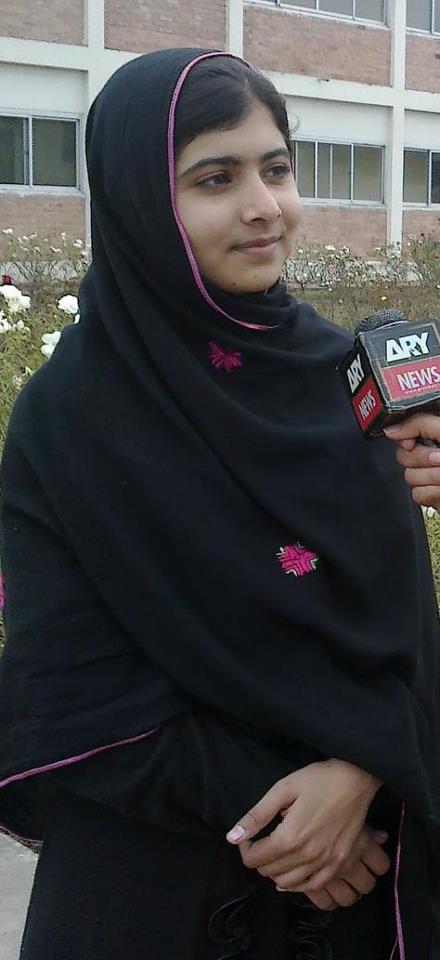
There are two blatant puzzles associated with the shooting of 14 year old Malala Yousafzai by the Taliban in Pakistan Tuesday. The first is the motive: what benefit could any organization, especially one that eventually hopes to lead the Pakistani population, gain from killing a young girl? The second has to do with strategy. Why would any organization ever publicly take credit for the shooting, especially after observing the worldwide outrage that resulted? Yet that’s exactly what the Pakistani Taliban did when it proudly took responsibility for the act.
So today’s puzzle is this: why is the Taliban so intent on killing this little girl? And why have they been so brazen as to claim responsibility, going so far to say that they will not stop until she is dead? Could any single child be that important?
***
Answer to last week’s puzzler
Last week we asked why the governments of Libya and Egypt reacted so differently to the attacks on US diplomatic facilities in their respective countries. Commenter Scott Monje suggested that the US “appears to be much more popular in Libya than in Egypt,” encouraging the Libyan government to quickly apologize for the attack. Daniel Rio Tinto added that the Libyan government was more dependent on the US because it came to power “with the aid of NATO intervention” which made them “much more careful on how to engage with the US and the West as a whole.” Both are true. The real question, however, is why the US enjoys greater popularity in Tripoli than Cairo despite the substantial aid both countries receive from the US. I believe the answer has more to do with domestic politics than anything the US does or does not do.
Both the current regimes in Egypt and Libya are in the midsts of domestic power struggles: Egyptian President Morsi and the Muslim Brotherhood are in a heated competition with the extreme but still popular Salafists for public support. In Libya the power struggle is much less severe, as it is between the newly elected president and legislature and the far less popular Al Qaida faction, but could still cause problems.
The govenrment in Libya had the luxury to quickly and immediately condemn the attacks because the perpetrators of the attacks — a wing of Al Qaida — are not popular in Libya and thus pose no threat to the regime. The attackers’ goal was not to undercut popular support for the existing regime — which they have no ability to do — but to convince the regime’s main supporter, the United States, to leave the country.
President Morsi is in an entirely different position. His Muslim Brotherhood won the most recent election, but faces a strong competitor from more extreme Salafists, who were behind the attacks in Egypt. The Salafists goal was not to convince the United States to leave — something that they will not be able to do — but to convince Egyptian voters that the Muslim Brotherhood is “in bed” with the US and thus not worthy of their support. Given this game, in the aftermath of the attack Morsi was in a difficult position. He could not immediately condemn the attackers and come out in support of the US, since this would signal to Egyptians where his allegiance lay. But he could not unequivocably support the attackers since the regime depends on continued US aid. Morsi, thus, behaved quite strategically when he initially condemned the video and its author, demanding an apology, but then a few days later quietly shut down further demonstrations.

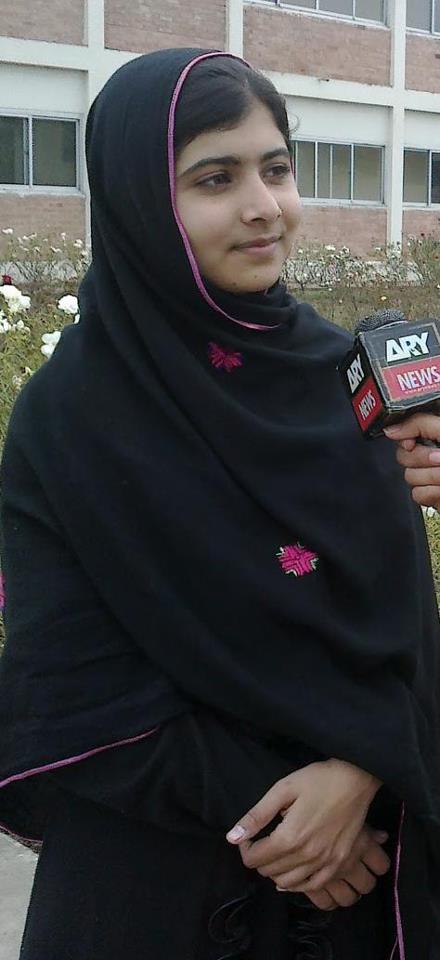

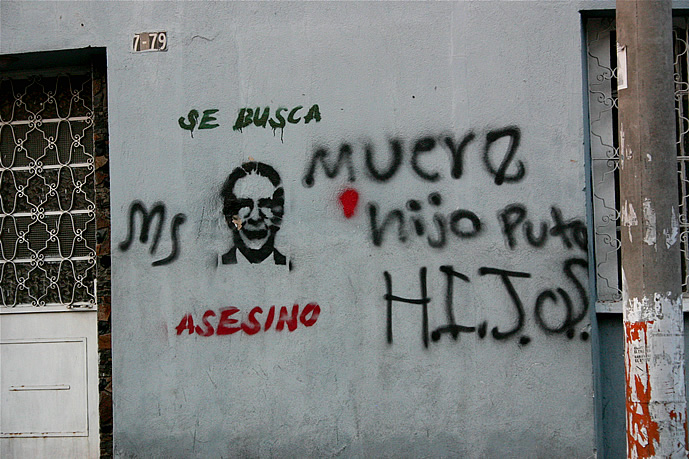
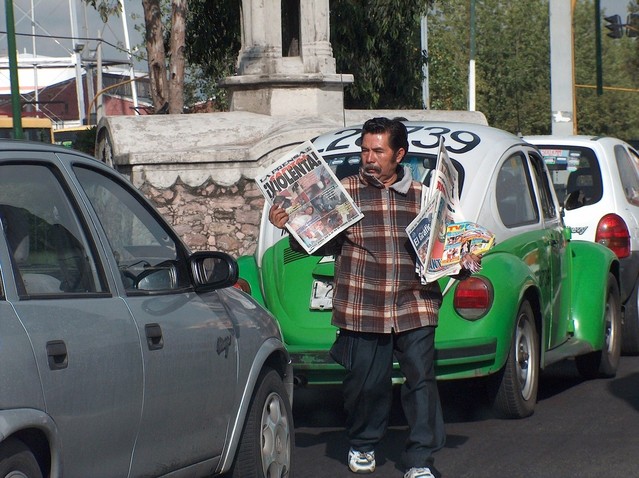


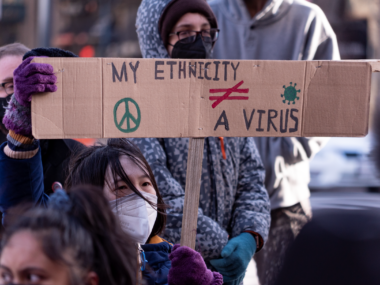
0 comments
My immediate guess is that they want to make an example out of her, to deter other potential activists. Taking credit and making a small spectacle out of the whole thing is the natural thing to do to maximize the symbolic/psychological effect of the act and establish the credibility of the threat against activists.
Arab and Muslims have always used people as Khamikaz, so this is not a new thing to me. They always want to gain control over eveyr media, in every one`s mouth. That Bangladeshi student had the opportunity to go and study in the US, instead he was plotting to blow the Federal Reserve Bank. They need to seek professional help, as psychological counselling because they have fake scares on them. They mad.
After India has gained independence, the muslims have asked for a seperate state. What do they want now. Unsatisfied greedy needs. Go and learn other peoples cultures insteazd of trying to find ways to eleiminate other race. Losers.
Politics will never be fair because there is no fairplay!!! Too Biased!!
My thinking is that the shooting has to do with competition among armed groups. Ungoverned regions of Pakistan are home to numerous armed groups, which ideologically compete for both recruits and support and sympathy from the population. Unlike in Afghanistan, the Pakistani Taliban cannot bolster its appeal by claiming to defend their homeland against a foreign occupier, or represent an ethnic group. So the domestic audience receptive to the Pakistani Taliban is likely fairly small, and very religiously conservative compared to the wider population. Attempting to kill Malala Yousafzai could be an attempt to demonstrate the group’s “credentials” to this audience, and international outrage either doesn’t matter – as the intended audience likely has little contact with international media – or is seen as a positive.
So today’s puzzle is this: 1. why is the Taliban so intent on killing this little girl? 2. why have they been so brazen as to claim responsibility, going so far to say that they will not stop until she is dead? 3. Could any single child be that important?
1. To deter others from following in her footsteps. Ruling authorities routinely warn dissenters to either stay in line or suffer consequences, and the Taliban are the dominant ruling authority in this region.
2. They claim responsibility in order to validate their legitimate authority in the region.
3. Anyone — even a child — who steps out of line in a public, brazen way undermines the legitimacy of the ruling authority and subjects themself to the full consequences of that authority.
I would also say that there is another question, which is the tactic and type of violence used by the Taliban. Why did they shoot her instead of rape her? This gets into a lot of the work by Elizabeth Wood and Dara Cohen.
To truly understand this situation, you need to understand the sentiments of people in the region and what al Qaeda fighters see themselves to really be fighting for (hint: it’s not anything you would ever learn from American punditry). This girl is often presented a champion of women rights for educating girls in Pakistan. That’s quite true, but that’s not even half of the situation. From al Qaeda’s perspective, she was indoctrinating pakistani children with western values. In other words, she was encouraging acceptance of the ideology associated with occupying forces, drone strikes, and the illegitimate establishment of borders in the Middle East and North African regions. The United States are the current occupiers, as seen by the people of al Qaeda; they are viewed as merely the latest in a series of colonial oppressors. The courageous and honorable task, to people who think in these terms, would be to stand up to the oppressors rather than further indoctrinate people in the ideology associated with the oppression.
The truth is that this girl was, unfortunately, made an example by those who want to encourage rebellion and discourage those who willingly endorse the oppression. What they hope to gain is deterring such behavior in the future. The fact that she is a little girl makes her position as an example to deter contributing to indoctrination all that much more powerful. The world outrage is a secondary, but probably intended, consequence. This is especially true since, by world outrage, we really mean *Western* outrage. If the oppressors that are the subject of their discontent are outraged, that may exacerbate hostilities, which would hopefully result in more people joining the rebellion. We could ask the same about any terrorist attack, particularly one directed toward the West: “Aren’t they concerned about political backlash?” Political repercussions may lead to a worsening of the situation which would result in more people rising up against their oppressors. Therefore, if they are concerned at all, they are possibly hoping it would occur.
I should offer that in no way condone terrorist attacks or the aggression directed toward Malala Yousafzai. However, I strongly believe that, as political scientists in the West, we often get hung up on the details that fit within our own perspective and worldview. In order to really and truly understand what is going on, particularly with a domestic issue, we need to understand how people on the ground are viewing the situation. The tragedy is how often we only grasping a very small part of the situation.
I should also add that I do commend Barbara F. Walter and Erica Chenoweth for the exceptional job they do at revealing the whole picture of the issues they are exploring, which often requires an interdisciplinary approach. This is far too often not the case of scholars in this discipline.